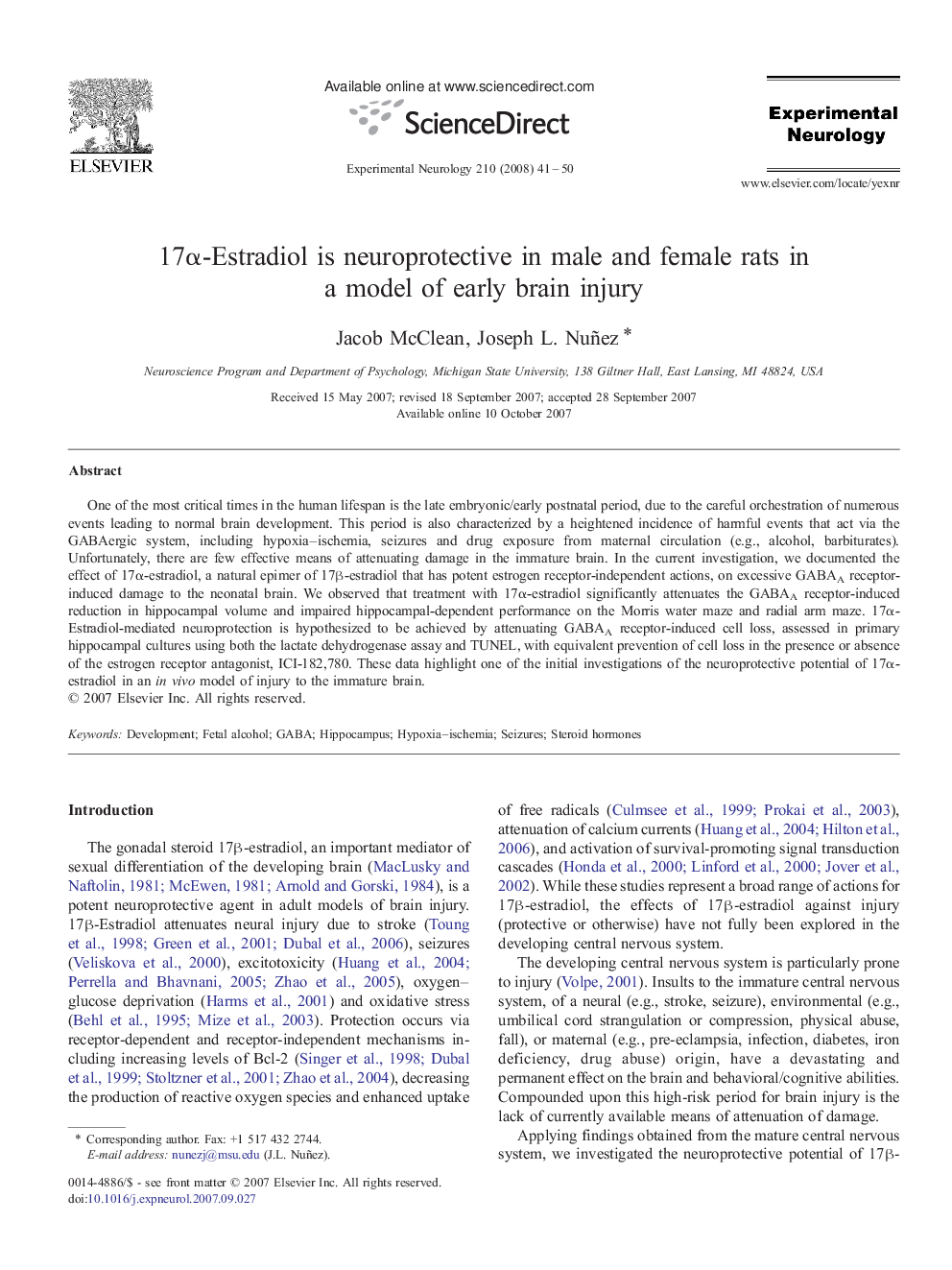| Article ID | Journal | Published Year | Pages | File Type |
|---|---|---|---|---|
| 3056812 | Experimental Neurology | 2008 | 10 Pages |
One of the most critical times in the human lifespan is the late embryonic/early postnatal period, due to the careful orchestration of numerous events leading to normal brain development. This period is also characterized by a heightened incidence of harmful events that act via the GABAergic system, including hypoxia–ischemia, seizures and drug exposure from maternal circulation (e.g., alcohol, barbiturates). Unfortunately, there are few effective means of attenuating damage in the immature brain. In the current investigation, we documented the effect of 17α-estradiol, a natural epimer of 17β-estradiol that has potent estrogen receptor-independent actions, on excessive GABAA receptor-induced damage to the neonatal brain. We observed that treatment with 17α-estradiol significantly attenuates the GABAA receptor-induced reduction in hippocampal volume and impaired hippocampal-dependent performance on the Morris water maze and radial arm maze. 17α-Estradiol-mediated neuroprotection is hypothesized to be achieved by attenuating GABAA receptor-induced cell loss, assessed in primary hippocampal cultures using both the lactate dehydrogenase assay and TUNEL, with equivalent prevention of cell loss in the presence or absence of the estrogen receptor antagonist, ICI-182,780. These data highlight one of the initial investigations of the neuroprotective potential of 17α-estradiol in an in vivo model of injury to the immature brain.
